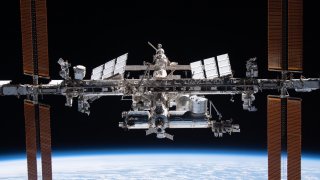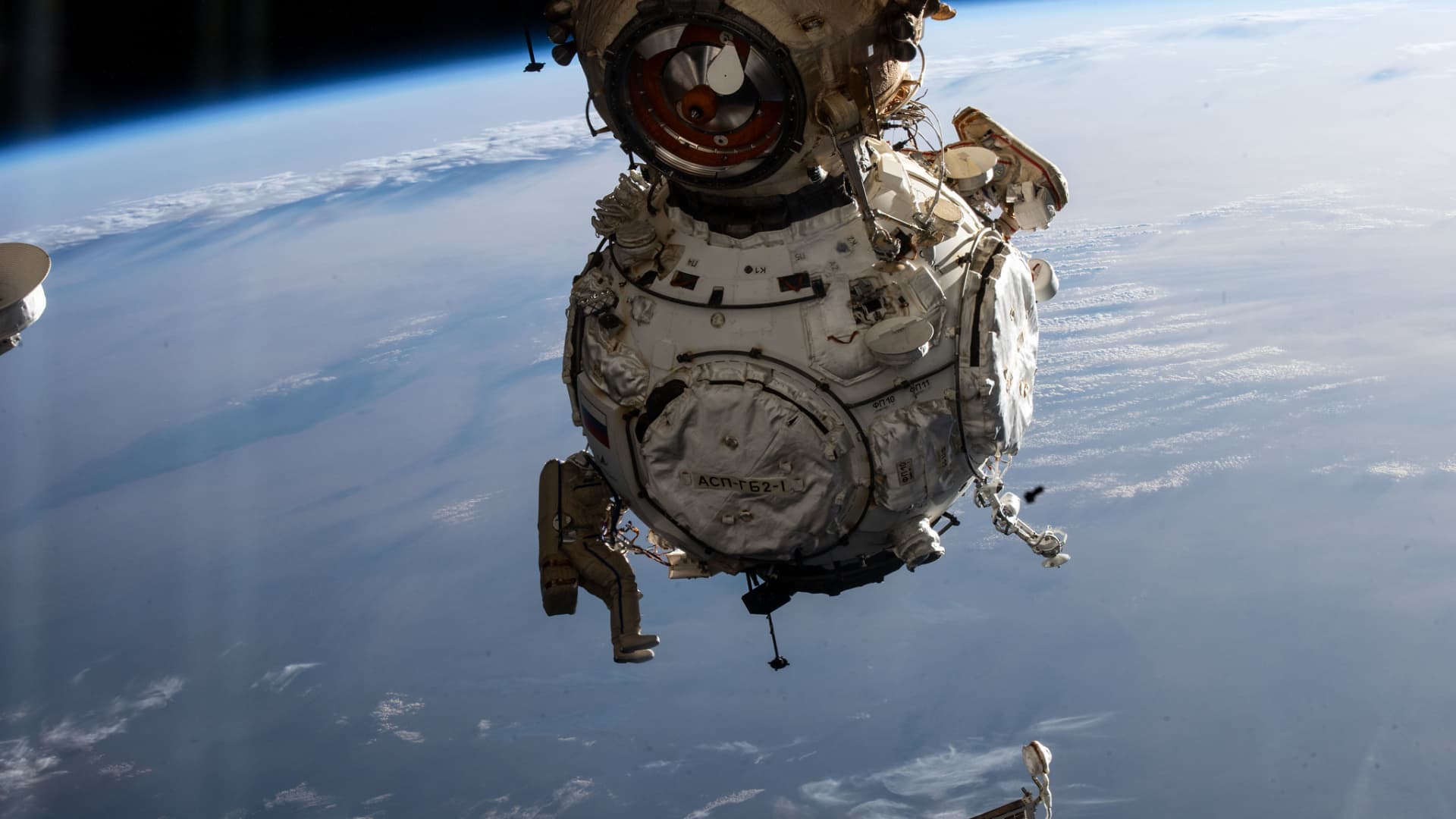
- The International Space Station partnership is yet unaffected by Russia's invasion of Ukraine.
- The NASA and Russian Roscosmos "teams are still talking together, we're still doing training together, we're still working together," Kathy Lueders, the top NASA official on human spaceflight, said on Monday.
- Currently, there are seven people on board the ISS: five astronauts — four American and one German — and two Russian cosmonauts.
NASA's top official on human spaceflight addressed the agency's International Space Station partnership on Monday amid growing global tensions, saying the orbiting research laboratory is yet unaffected by Russia's invasion of Ukraine.
WATCH ANYTIME FOR FREE
Stream NBC10 Boston news for free, 24/7, wherever you are. |
"We are not getting any indications at a working level that our [Russian] counterparts are not committed to ongoing operations," NASA Associate Administrator Kathy Lueders said during a news conference on Monday.
The NASA and Russian Roscosmos "teams are still talking together, we're still doing training together, we're still working together," Lueders added.
Get updates on what's happening in Boston to your inbox. Sign up for our News Headlines newsletter.
Currently, there are seven people on board the ISS: five astronauts — four American and one German — and two Russian cosmonauts. Lueders spoke during a news conference hosted by Axiom Space, which plans to launch its private Ax-1 crew mission to the ISS on March 30.
The ISS is physically divided into two sections: the United States Orbital Segment and the Russian Orbital Segment. The U.S. and Russia keep the research laboratory continuously staffed with astronauts and cosmonauts, with the roles of each nation's segment mutually dependent on the other — ranging from life-support systems to thrusters that keep the ISS in orbit.

Simply put, the ISS' future in orbit — absent a very expensive and challenging investment by NASA — is dependent on the U.S. and Russia continuing to work together.
Money Report
"It would be very difficult for us to be operating on our own," Lueders said.
While NASA expects to continue to operate the ISS until 2030, Roscosmos has not renewed its role beyond 2024. Dmitry Rogozin, the head of the Russian space agency, made a series of veiled threats on Twitter last week in response to U.S. sanctions — saying "monstrous consequences" could include the ISS de-orbiting.
Lueders emphasized that NASA is looking at alternatives to "get more operational flexibility." Northrop Grumman is "offering up a reboost capability" to keep the ISS in orbit, Lueders said, and Elon Musk's SpaceX is looking at what the company can offer NASA to assist with the space station.
"Currently there is no plan" to replace Russia's role on the ISS, Lueders noted.
Beyond the long-term ISS partnership, crew and cargo transportation is top of mind. Lueders said NASA still plans to return astronaut Mark Vande Hei from the ISS, via Russia's Soyuz spacecraft, in about a month.
Additionally, while Roscosmos has yet to fly a cosmonaut on SpaceX's Crew Dragon, the agencies have been working toward an agreement that would see Russia's Anna Kikina fly on the U.S. spacecraft later this year.






